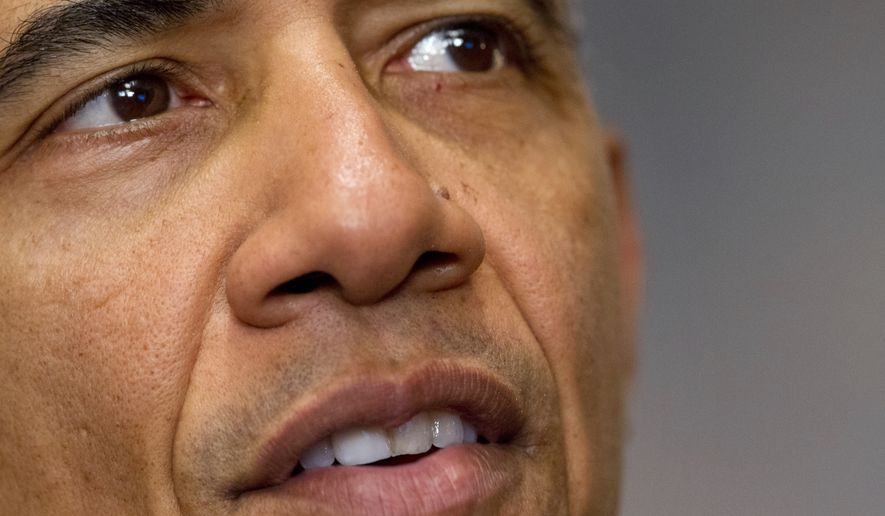OPINION:
There’s fundamental change afoot in the Middle East, and it’s obscured by the behavior of the Obama administration, which is suspended between contradiction and confusion. Barack Obama has one strategy of telling everyone that the American military option is “off the table” while a second strategy incrementally increases U.S. special forces on the ground and more bombing from the air. He insists that Bashar Assad must leave Syria but he negotiates Assad participation in a “settlement.” He continues to talk about further Israeli-Palestinian negotiations, which everyone else has recognized as dead. That’s dead, as in graveyard dead.
Central to the new picture emerging is Saudi Arabia. Western pressure and internal reformers, or would-be reformers, are trying to eliminate the most egregious elements of the reigning regime, its long allegiance to Islamic fundamentalism which lies at the root of much of the misery and grief in the world. The Saudis are flooding the world oil markets to cripple competitors, but fracking in the United States has undermined what once seemed a permanent Saudi dominance. Internal reform is having an effect — women will soon be permitted to vote — but more important to Riyadh is the Obama administration’s flirtation with Iran.
The Saudis have been forced into direct talks with Tehran to short-circuit Washington-Tehran deals. At the same time, the Saudis are rallying Sunni allies in Syria against the growing influence, and military prowess, of Iran. The nomination of a pro-Syrian president in Lebanon and the growing domination of the Iranian ally, the Shia Hezbollah, frightens the Saudis. Traditional family loyalties will soon be put to the ultimate test.
The Israeli-Arab conflict, which has dominated Middle East politics, fades in the face of the greater fear of an aggressive Iran, perhaps soon, thanks to Mr. Obama, to have the bomb. The announcement that Israel is opening a diplomatic mission in Abu Dhabi, although carefully disguised as something less than dramatic, is evidence of the new tacit alliances. Israel and Egypt cooperate in a tight security and military alliance against Iran’s client, Hamas in Gaza, and the remnants of the Muslim Brotherhood are fighting as guerrillas against the Cairo government. The disintegration of the Palestine Liberation Organization under aging President Mahmoud Abbas means there is no negotiating partner on the Palestinian side. The current wave of Palestinian violence — “lone wolf” episodes encouraged by Hamas — is met by a stoic Israeli public. The wave has not slowed the flight of French Jews, discouraged by violent anti-Semitic episodes in France, to Israel. Despite American and European opposition, Israel is consolidating settlements in the West Bank and in East Jerusalem.
The Obama administration’s response is an attempt to negotiate a settlement of the Syrian civil war. Vladimir Putin has joined the effort in a nominal way, but he raises his support of the Assad regime, which Mr. Obama insists must go. With a collapsing economy, a tumbling international price for oil, its only export, and Western sanctions over the Ukraine issue, Mr. Putin faces formidable challenges. His firing of missiles from the sea last week was a dangerous escalation, not least because Russian missiles fired earlier from the Caspian Sea fell short in Iran. Miscalculations have set off wars in the region and the risks are greater than ever in a region more dangerous and muddled than ever.




Please read our comment policy before commenting.